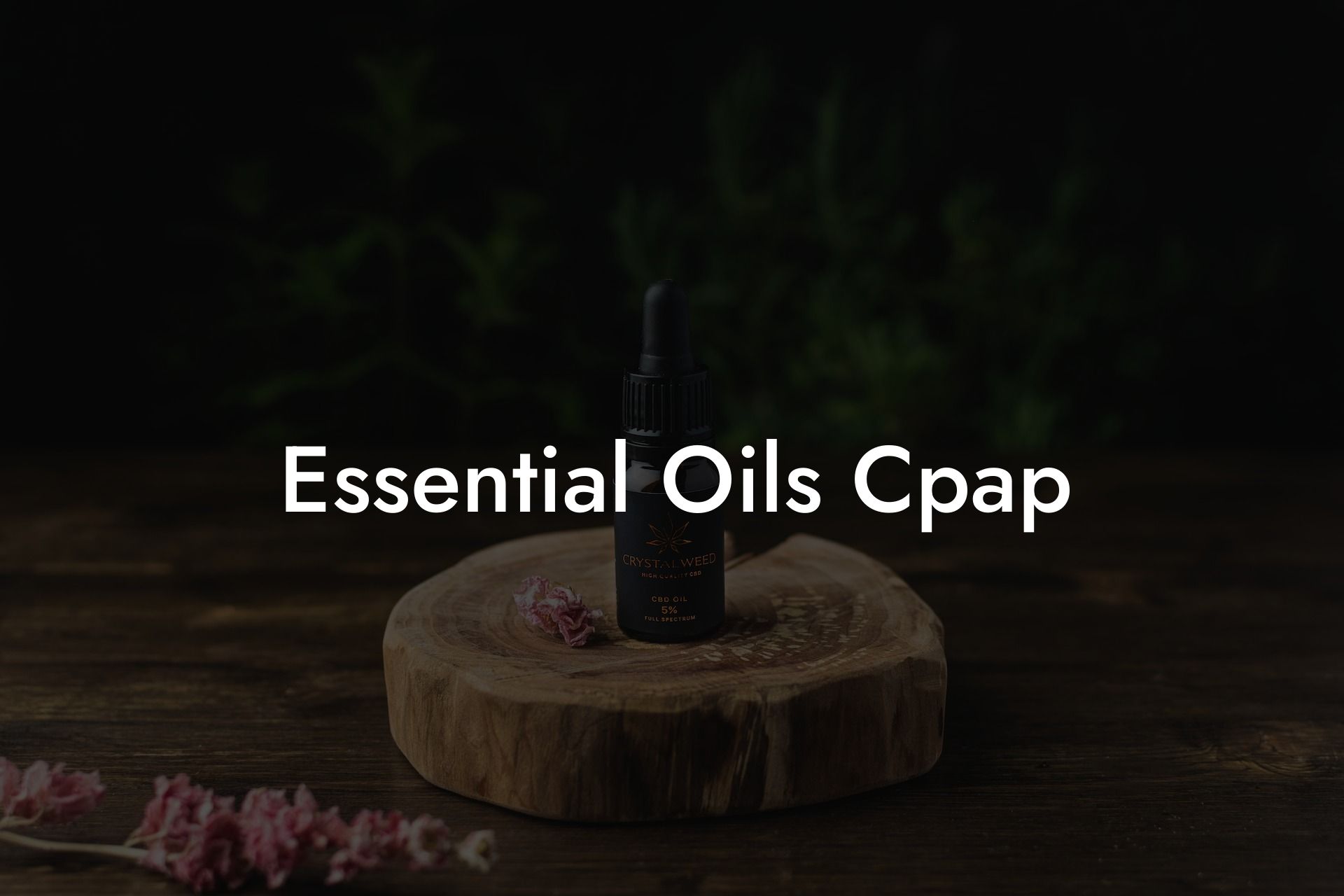Have you ever struggled to fall asleep or stay asleep while using a CPAP machine? The good news is that essential oils can provide a natural adjunct to improve your sleep experience with CPAP therapy. In this article, we’ll explore the use of essential oils for CPAP machines, the best oils for promoting a restful sleep, as well as safety considerations and practical tips.
Table of Contents
Why Use Essential Oils with CPAP?
Essential oils have long been known for their significant impact on our physical and emotional well-being. With the increasing popularity of aromatherapy, their use has expanded to a variety of applications, including CPAP machines.
By incorporating essential oils into your CPAP routine, you can enjoy the following benefits:
- Enhanced relaxation and stress reduction
- Improved sleep quality and duration
- Reduced anxiety and discomfort related to CPAP use
- Increased adherence to CPAP therapy
Best Essential Oils for CPAP Users
When selecting essential oils to use with your CPAP machine, it’s crucial to choose those that promote relaxation, stress relief, and sleep. Some of the best options include:
Lavender
Lavender is a popular choice for its calming and sedative properties that help alleviate stress, anxiety, and insomnia.
Chamomile
Chamomile is another well-known sleep aid that promotes relaxation and reduces stress.
Bergamot
Bergamot promotes relaxation and stress reduction, as well as helping to regulate the sleep-wake cycle.
Ylang Ylang
Ylang Ylang is known to ease tension, calm nerves, and enhance sleep quality.
Marjoram
Marjoram is known to relieve stress, promote relaxation, and induce a sense of calm that encourages sleep.
It’s important to note that individual reactions to essential oils may vary, so be sure to experiment with different oils to find what works best for you.
Safety Considerations and Practical Tips
Before introducing essential oils into your CPAP routine, consider the following safety guidelines:
- Consult with your healthcare provider before starting any new complementary therapy, especially if you have any pre-existing medical conditions or are taking medications.
- Only use pure, high-quality essential oils from a reputable source like Oshu Oils to ensure their effectiveness and safety.
- Never add essential oils directly to your CPAP machine or humidifier, as this can damage the equipment. Instead, use a separate diffuser or cotton pad placed near the air intake of the CPAP machine.
- Start with a low concentration of essential oils and closely monitor your body’s reactions. If you experience any adverse effects such as respiratory irritation or skin sensitization, discontinue use immediately and consult a healthcare professional.
Essential Oils Cpap Example:
Jasmine, a 45-year-old woman, has recently started using a CPAP machine for her sleep apnea. However, she finds it challenging to adjust to the mask and noise, making it difficult for her to fall asleep. After researching essential oils, Jasmine decides to try adding lavender oil for its calming properties.
Jasmine purchases a high-quality lavender essential oil from Oshu Oils and follows the recommended safety guidelines. She places a few drops of the oil on a cotton pad and positions it near the air intake of her CPAP machine. Over time, Jasmine notices a significant improvement in her relaxation levels and overall sleep quality, making it easier to adapt to her new CPAP therapy.
Combining essential oils with CPAP therapy can help enhance relaxation, sleep quality, and overall wellness. We hope this guide has provided valuable information on using essential oils with your CPAP machine. If you found this article helpful, please don’t hesitate to share it with others who may benefit from this knowledge. Explore our other guides on essential oils and aromacology to further empower your wellbeing journey, and be sure to check out Oshu Oils’ range of artisan essential earth oils for your aromatherapy needs.





















